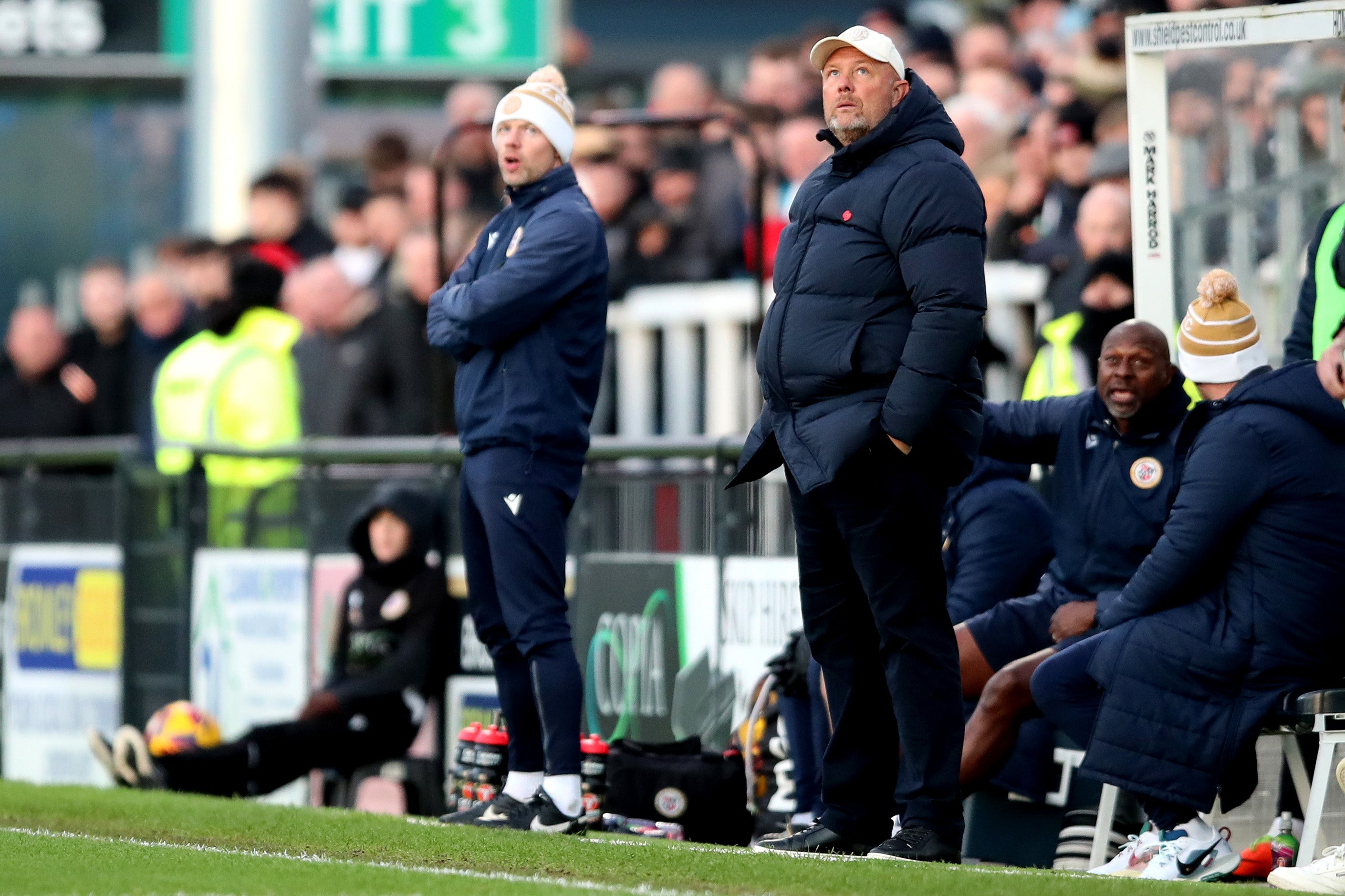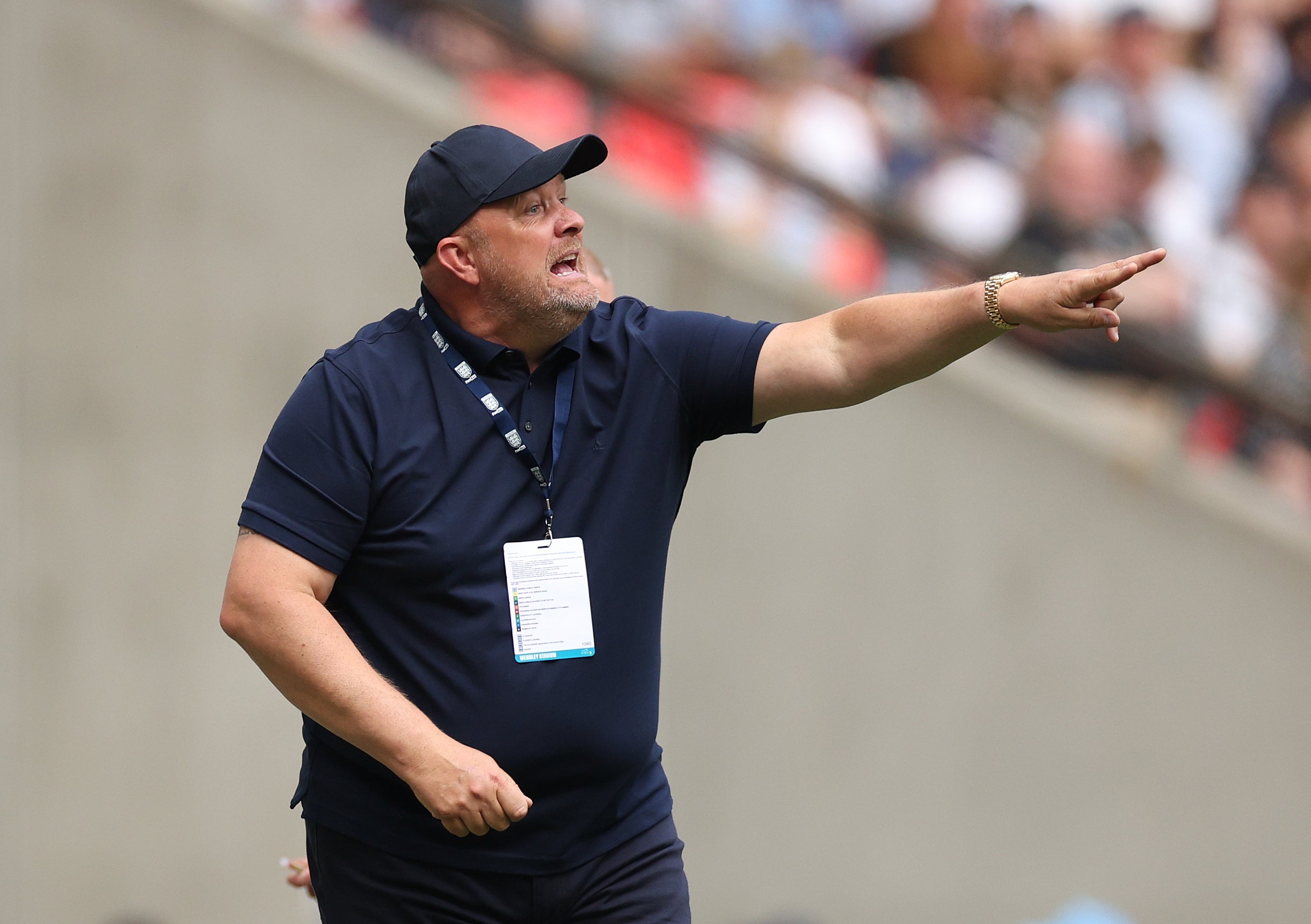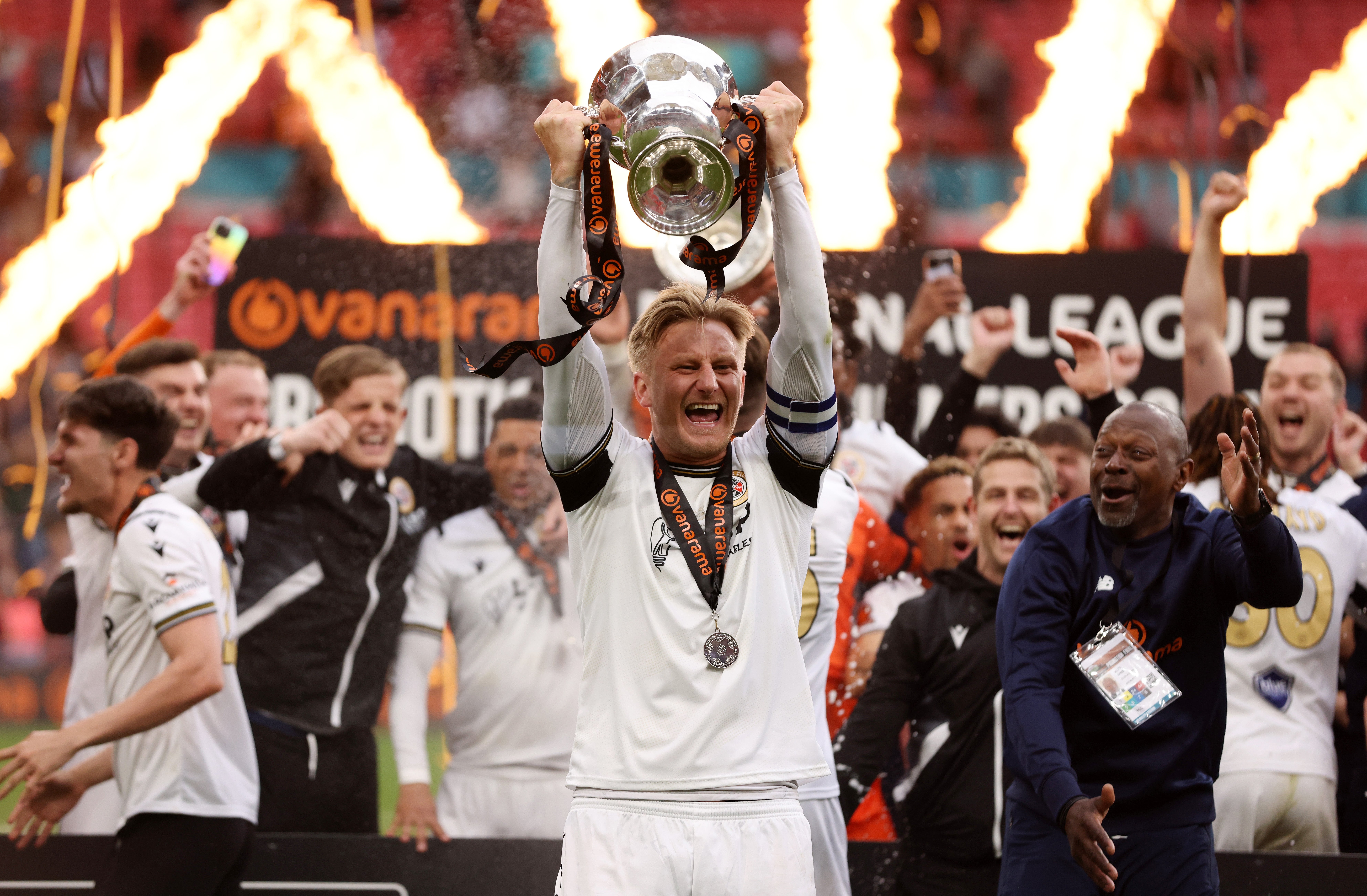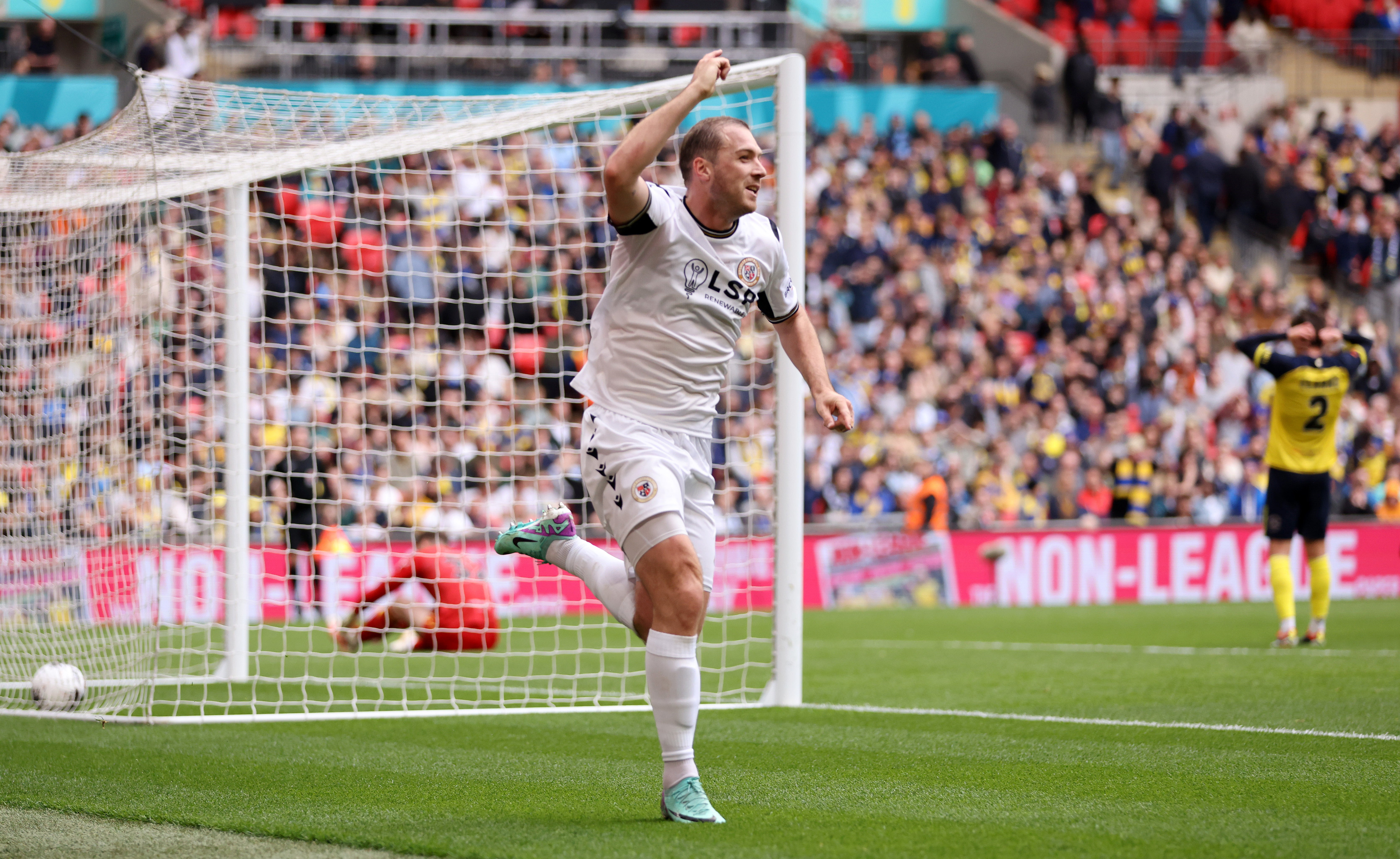On 2 December, sitting nervously in Bromley’s boardroom, assistant manager Alan Dunne and CEO Mark Hammond watched the FA Cup third-round draw unfold on a TV screen in the corner. Bromley FC were established 133 years ago and, for the first time in that long history, their club were involved in one of English football’s great rituals.
“We all wanted a massive draw but I thought all the big games had gone,” says Dunne, recalling the tension as the draw dragged on. But one Premier League giant was still out there. Their ears pricked as “Newcastle United” were announced, and when “No 6” followed, they lost their minds, screaming, hugging, beating the table.
“Get Woody on the phone!” shouted Dunne, grabbing his mobile. Andy Woodman is the manager who led Bromley into the Football League last summer for the first time, after more than a century toiling in non-league. Before Bromley, Woodman – an imposing figure and an even bigger character – was a renowned goalkeeping coach at Arsenal, West Ham and Newcastle, where his son Freddie was on the books for eight years, and he had spent the days preceding the draw telling anyone who’d listen they were destined for St James’ Park.
“He said it all week,” says Dunne. “He said, ‘We’ll get Newcastle away, I promise you’.”
Woodman’s dream tie came true, and so on Sunday a club whose average attendance is 3,000 will travel to Newcastle in the FA Cup, with 5,000 away tickets to sell. Both clubs wear black and white and their nicknames, the Magpies and the Ravens, are avian cousins, but that is about where the comparison ends. Newcastle’s last three games were wins over Manchester United, Tottenham and Arsenal; Bromley lost 4-1 at Crewe on Sunday and conceded four foul throws.

In fairness, that disastrous performance did not reflect an impressive debut season in League Two which has Bromley sitting 12th in the table, far closer to the play-offs than the relegation zone. For decades, the club lingered around the sixth and seventh tiers before a steady climb over the past two decades. They nearly went bust in 2014 but were saved and then sold to local businessman Robin Stanton-Greaves the following year.
It is no Wrexham story with a Hollywood transformation. Improvement has been gradual through investment in facilities and the ground at Hayes Lane, and their committed supporters have had to be patient.
“When I first came it was 250 fans and a dog,” laughs Matt Hall, a fan who has since become the club’s football operations officer. While the club improved off the field, Woodman set out to raise standards on the pitch, adding a sports scientist and a performance analyst to his backroom staff. “Andy brought his Premier League mentality with him,” says Hall. “He’s helped elevate this club on and off the pitch in terms of professionalism, how things are done, how things are run.”

Bromley spent nine years in the National League, a notoriously difficult place to escape with only two promotion places to League Two, and twice lost in the play-offs before finally reaching the promised land with a shootout win over Solihull Moors at Wembley in May.
It was an emotional day for everyone involved, not least Woodman. He grew up in the area and still refers to Bromley as “the town” despite it being enveloped by London’s sprawl over the past half-century, giving its name to a London borough with a bigger population than Newcastle-upon-Tyne. Bromley is a place that was once its own space, a suburban market town surrounded by green fields, before swelling to what comedian and former resident Frankie Boyle once described as “like a lobotomy made out of bricks”. And yet the football club has been a constant presence, a thread through the generations.

“This has been an unhealthy obsession for me,” Woodman said on the pitch after the play-off final. “It was about changing history at this football club and about making sure that when we’re long gone – me, my team and my staff – we’ll be forever the people that got us in the Football League.”
The manager promised to “smash doors down” in League Two and Bromley have certainly made their presence felt, beating Harrogate and AFC Wimbledon in their opening two games, while adjusting to alien environments like playing in front of 17,000 at Bradford. They’ve done it while retaining a core of non-league players (striker Michael Cheek was prolific in the National League and has 13 goals already this season) and adding some key loans from local clubs such as Palace and Millwall. It helps in the transfer market when everyone in football seems to know Woodman – “his contacts book is incredible,” says Hall.

Bromley were unbeaten in 12 games before last weekend’s stumble at Crewe, deploying their pragmatic football in the Football League with great effect. “It took us a while to understand the league and the quality of it, but our philosophy hasn’t changed,” says Dunne. “We’re a high-energy, hard-working team, built on defensive structure.”
Sunday’s game will require one of the greatest rearguard actions in FA Cup history if they are to survive, but the game will be transformative, win or lose. A home fixture would have been logistically problematic with plans underway for a new East Stand at Hayes Lane, so the away trip will maximise financial returns, even if it makes a near-impossible tie even harder. The owner has already earmarked ways to invest that money back into the club.
Only eight months after an open-top bus parade through the streets with the National League play-off trophy, the town is abuzz once more. “It’s putting Bromley on the map a little bit,” says Hall. “It’s a dream tie for fans, for staff, for players. It’s a once-in-a-lifetime opportunity for us.”






